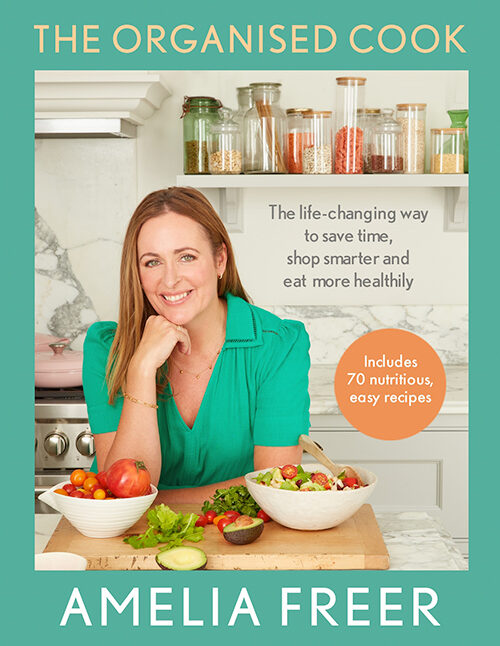The Health Benefits of Exercise
Oct 2019

What part should exercise play?
It’s hard to argue with the fact that regular movement is good for our health. As well as playing an important role in helping to prevent heart disease, type 2 diabetes, stroke, some cancers and musculoskeletal problems, exercise can also boost our mood and cognitive function (NICE, 2014) (Kramer and Erickson, 2007). Plus for many people, it can also be a source of great enjoyment, a bit of headspace, a way to unwind and de-stress or an excuse to catch up with mates.
I do also know that this isn’t the case for everyone and many dread doing exercise. Personally, I have to force myself to do it and many of my clients feel the same way. So seeking out ways to enjoy it are key. For me this is being outdoors, with my dogs or with friends rather than being in a gym or class, but each to their own.
I am not a fitness professional. However, I do understand the importance of movement for a healthy mind and body. This 3-part series has been written in collaboration with Richard Hannam, an experienced health and wellbeing physiologist and personal trainer, who has kindly shared his wealth of expertise and knowledge throughout this feature. If you are suffering from any condition that may affect your ability to safely exercise, do seek the advice of your GP before attempting any of the advice discussed. As always, what is written here is no substitute for individual medical, fitness or lifestyle advice.
Whether you love it or hate it, exercise is important, but it is easy to get confused about what we are aiming for and why we are doing it. Social media can make it seem a very off putting and daunting task (only for those with perfect bodies!) and fitness websites can sometimes make it seem that unless you are training everyday, top-to-toe clad in tight fitting Lycra, then it’s not for you. And don’t get me started on how tight and uncomfortable most exercise clothing is, seemingly made for those who are slim and fit and not for those with “normal” bodies. Almost everyone I know and work with wants realistic and enjoyable ways to exercise that isn’t going to cost them a fortune and make them feel bad about themselves.
So I thought I would start by sharing what the UK general recommendations for exercise are, and hopefully show that it isn’t as difficult to achieve / scary / unrealistic as we might think. And, happily, there is no need to join an expensive gym, spend hours lifting weights, or bedeck yourself with fancy fitness gear to achieve these suggestions.
The current UK movement recommendations for healthy adults are as follows (NICE, 2013):
Try to be active in some way daily – anything is better than nothing. Even if that’s just 5 minutes a day to start with.
Over a week, this could add up to at least 150 minutes of moderate activity (you can choose how you divide those minutes up).
Or, comparable benefits can be achieved through at least 75 minutes of vigorous activity spread across the week.
Or a combination of the two.
Try to incorporate some resistance (muscle strength) and balance training twice a week – this is important for bone health and health preservation (such as pilates, yoga and body weight exercises).
Everyday movement (walking up stairs, walking to the shops, doing the housework, pottering around etc.) is just as important as formalised ‘exercise’.
Many workplaces are now starting to offer the option of standing desks to help minimise the amount of time you spend sitting, or if this isn’t an option, I have found that putting a Sissel SitFit on my desk chair has made a big difference to back aches and pains, and I also find that I just move about a lot more whilst I am working away – I honestly love it (and it’s a bit less cumbersome than an exercise ball).

How to get the right intensity:
Working to a ‘perceived intensity’ helps you tailor the activity you are doing to your current level of fitness. Richard uses this simple guide with his clients, called the ‘sing’ test:
Moderate intensity:
Faster breathing, increased heart rate and feeling warmer. In other words, you could still talk, but you couldn’t sing whilst you are moving.
Vigorous intensity:
Hard breathing, rapid heart rate and shortness of breath. In other words, you can neither talk nor sing whilst you are moving.
This is how it could look in real life:
Monday: Rest day – just pottering about at home or work
Tuesday: Walk to work and home again (60 minutes moderate cardio)
Wednesday: Pilates class (strength & balance training)
Thursday: Spinning, dance or circuits class (45 minutes vigorous cardio)
Friday: Quick body weight workout at home (strength & balance training)
Saturday: Bike ride and play in park with kids (60 minutes moderate cardio)
Sunday: Gardening or general housework (30 minutes moderate cardio)
“Exercise doesn’t always need to mean pounding the treadmill hard, or sweating it out in class. Sometimes it can just mean gentle movement therapy. Find a green space and walk around it, do some gentle stretches, swim in the sea, play with your children, potter about the garden. It is all valuable and valid movement”
Resources & References:
Handy resources:
For more information on recommendations for exercise, do take a look at the NHS choices website:
nhs.uk/physical-activity-guidelines-for-adults
For some simple, 10-minute workouts you can do at home:
Advice on exercising in pregnancy:
nhs.uk/conditions/pregnancy-and-baby
References:
Kramer, A. and Erickson, K. (2007). Capitalizing on cortical plasticity: influence of physical activity on cognition and brain function. Trends in Cognitive Sciences, 11(8), pp.342-348.
NICE (2014). Physical activity: exercise referral schemes | Guidance and guidelines | NICE. [online] Nice.org.uk. Available at: https://www.nice.org.uk/guidance/ph54/chapter/what-is-this-guideline-about#benefits-of-physical-activity [Accessed 9 Jun. 2017].
MORE TO EXPLORE
Please note that the information on this website is provided for general information only, it should not be treated as a substitute for the medical advice of your own doctor or any other health care professional providing personalised nutrition or lifestyle advice. If you have any concerns about your general health, you should contact your local health care provider.
This website uses some carefully selected affiliate links. If you buy through these links, we may earn an affiliate commission, at no additional cost to you. This helps to keep all of our online content free for everyone to access. Thank you.



